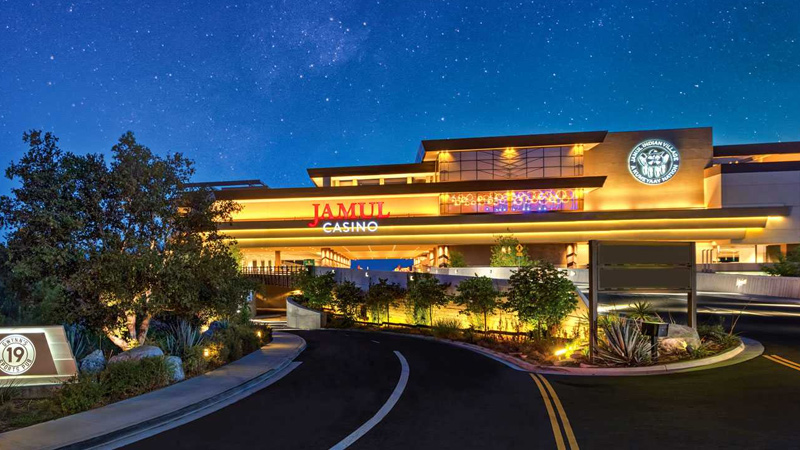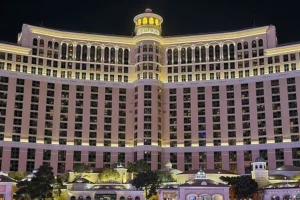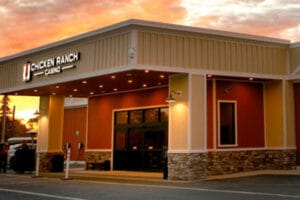California’s Jamul Casino Ends Lawsuit Battles with Federal Decision

For more than two decades, Jamul Casino, formerly Hollywood Casino Jamul and located near San Diego, has faced several lawsuits a year.
Local and former residents have sent more than 20 legal challenges against the Jamul Casino. They date back to the first proposal for the casino in 1999, through its 2016 opening, and all the way to today.
Every lawsuit failed for various reasons, but mostly based on the grounds of the Jamul Indian Village’s Tribal immunity.
Late last week, U.S. District Court Judge Andrew G. Schopler dismissed the latest case against the casino – as well as attempting to end the costly legal cases against it for good.
Schopler order sanctions to be imposed against the repeat plaintiffs if they continue to file lawsuits.
Related: Storm Riders online slot by Genesis Gaming, reviewed and rated
Roots of the Suit
The Jamul Indian Village is a tiny, six-acre plot of land in southeastern San Diego County, California, that has generationally been inhabited by the Kumeyaay.
The Jamul has only some 100 Tribal members. By the mid-1990s, only a dozen or so inhabitants remained at the Village site. Most had moved away, either to other Kumeyaay lands, or outside of reservations.
The Jamul Casino was first proposed in 1999. At the time, tensions were already high in the Tribe, as a pivotal election had been held earlier in the ’90s – mostly based on the dividing line over the casino idea.
The pro casino side won. However, from that point until at least this week, two inhabitants specifically took issue with the decision.
Walter Rosales and Karen Toggery have spend decades claiming that they were the real winners of the election night in the 1990s, and that any decisions made by Village governments since have been illegitimate.
By 2006, a dozen people on the site were paid handsomely to move out and make way for the casino project.
In 2007, Rosales and Toggery were the last remaining inhabitants of the Village before being forcibly evicted.
They have since given up fighting their leadership claim in court, having taken it all the way to the D.C. Circuit of Appeals.
However, they have actively supported and been directly involved with dozens of lawsuits against the Jamul Casino since its inception to this day.
Legal Carnage
Unable to directly sue the Village because of immunity, Rosales, Toggery, and others have sought various legal avenues of attack over the years.
Judge Schopler summed up the situation with his latest decision on the case.
“The defense argues that plaintiffs maintained this suit solely for harassment and with full knowledge that it was doomed. After surveying the legal carnage of the past few decades — including plaintiffs’ 20-plus failed lawsuits with various shifting and meritless theories — the court must grudgingly agree,” Schopler wrote.
“The only viable conclusion is that this action was brought in bad faith. And it is equally apparent that this campaign of harassment will not end until plaintiffs and their attorney are held to account for abusing the legal process.”
The latest lawsuit was taken out against the Roman Catholic Bishop of San Diego. The Church owned a graveyard site near the casino. But in 2017, it transferred the site to the Jamul Casino to expand its operations.
The Village says the graveyard remains accessible. But the lawsuit claimed funeral objects and remains were disturbed.
It alleged that the land transfer was also fraudulent, although Judge Schopler noted in his decision that the plaintiffs did not provide any information to prove this claim.
He also added that the Village was obviously a key party in the case, which means it cannot be assessed fairly without their involvement.
“The defense’s motion to dismiss must be granted for the same reason plaintiffs have heard time and again: The Village is an indispensable party, yet sovereign immunity stops it from being involuntarily added to the case,” he wrote.
The $400 million Jamul Casino was previously operated by Penn Entertainment, which ran the the casino for the Village under its Hollywood Casino brand.
However, the Pennsylvania casinos operator sold to the Tribe in 2018, and the casino was renamed Jamul Casino as it still operates today. The California casinos market is the largest of all states with Tribal casinos in the country.











